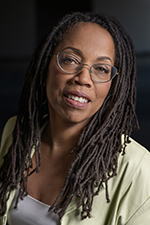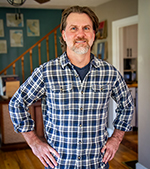 Past CNF Prize winner Siavash Saadlou talks with the CNF Prize judge about overlapping truths, production as the other side of craft, and how absence can play a role in the telling of traumatic events.
Past CNF Prize winner Siavash Saadlou talks with the CNF Prize judge about overlapping truths, production as the other side of craft, and how absence can play a role in the telling of traumatic events.
SS: I know that your book of essays, Black Cake, Turtle Soup, and Other Dilemmas, is out now. What was the most challenging part of writing or finalizing it?
GB:
The fun part is the writing and editing—the creation of the thing. The challenging part for me comes after that. Maybe we don’t speak about this enough. On the other side of craft is production and dissemination of our works. What it takes to share our work widely can often be an abrupt surprise for authors. That being said, stepping out of the usual ways of being is also a creative act, an extension of self that is both challenging and rewarding. After years of gathering, inhabiting and crafting stories, and publishing in magazines and journals, my first collection of personal essays is out in the world and being read. A recent phenomenon is that people will find phrases or incidents from the book that resonate with them and will quote my words back to me. I love when others find meaning in my specificities.
SS: As this year’s CNF Prize judge, what would be the makings of a winning submission for you?
GB:
I so look forward to reading new works. I love being surprised, delighted by beauty in language. I love to experience a beautiful, inspired phrase that rings and references something deeper.
Like many artists, as part of both musical and literary communities, I’ve served on arts council juries. There are always pieces that stand out. It could be a voice, a lens, or a tale with compelling urgency and drive. This is creative nonfiction. Take me to your places. I want to experience your worlds.
Read the rest of Gloria Blizzard's interview.
Ryan Cannon,
Novella Prize winner
 Volunteer Rebeca Dunn-Krahn talks with the Novella Prize winner about building a sensory narrative, providing an engine of causality, and taking your characters with you into the wilderness. Read "A Hunting Story" in our summer issue #227
Volunteer Rebeca Dunn-Krahn talks with the Novella Prize winner about building a sensory narrative, providing an engine of causality, and taking your characters with you into the wilderness. Read "A Hunting Story" in our summer issue #227
RDK: The story is very interior, but told in a cinematic way, with vivid colour and tactile detail. The weather and landscape feel like characters unto themselves. It made perfect sense when I learned that you also work in, and teach, film. What is your process for building a sensory narrative like this?
RC:
I worked on this story on and off over a number of years, and in that period spent a good bit of time in the Idaho mountains, including a few weeks getting drenched in the panhandle. (The misery of unrelenting rain in the story, I hope, feels lived.) I did try to convey a strong sense of place, and also to filter the details of the landscape through the characters, intending that we would experience this particular wilderness through a slightly heightened and close lens via the limited (sometimes unreliable) perspectives of the brothers.
As I had the piece in process for so long, I could carry the story and the characters with me into the mountains. I’d take notes, imagine where they would walk, what they would see, hear, smell, feel, and then do my best to infuse those details back into the story via the three brothers. In the moment, this can feel a little ridiculous, as I might find myself sitting in a downpour on the mountainside wondering how exactly to convey the sound of crow’s wings flying overhead. Or, let me jot down impressions of all twenty of these mushrooms. Very little of that stuff was generative, but images and sounds and moments I had gathered. My hope is that, like a mosaic, as the small details add up, they provide a complete and compelling impression of the landscape.
RDK: You also work as a screenwriter. What secret weapons of screenwriting should fiction and creative nonfiction writers know about?
RC:
There is definitely a shifting of gears that takes place when moving from one form to the other, but I find each enriching. Screenwriting restricts the writer from interiority, which is a great exercise, to find ways centered upon action and reaction and causality that externalize the character. I love the frisson that occurs when we find disparities between the interiority of a character and what they actually do. Psychological realism, while the bedrock of so much storytelling, can also become a blank wall. Who, after all, knows themselves completely?
Read the rest of Ryan Cannon's interview.